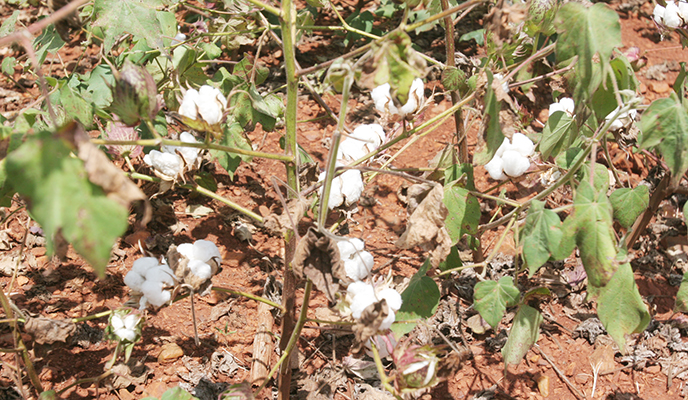
BY FIDELITY MHLANGA
THE debilitating cash crisis in the economy has affected cotton farmers this selling season resulting in cotton buyers giving them equipment in exchange for their produce.
At the beginning of the season, government approved a cotton floor producer price of $43,94 per kg which would comprise US$10 per each bale of cotton delivered, 38% of the value of a 200kg bale in Zimbabwe dollar cash notes and the balance transferred electronically to farmers’ mobile money wallet accounts.
But cash shortages in the country as well the move by the central bank to block mobile money merchants services has made farmers’ access to money a nightmare.
Cotton Producers and Marketers Association chairman Steward Mubonderi confirmed that due to cash problems in the country, cotton farmers were being paid in form of equipment or inputs.
“The cotton marketing season is moving at a slow pace, the main reason being that the rate at which farmers are being paid is still very low,” Mubonderi said.
“However, we happy that Cottco has come up with a brilliant idea where farmers are asking them to buy equipment be it scotchcarts, wheelbarrows or tractors or whatever input they need to buy. This is a noble move by Cottco. We want to continuously urge our farmers to continuously use this platform as it is the only way forward as payment or getting cash is becoming difficult.”
Mubonderi said he was happy that getting equipment provided long-term solutions to growers’ needs .
- Chamisa under fire over US$120K donation
- Mavhunga puts DeMbare into Chibuku quarterfinals
- Pension funds bet on Cabora Bassa oilfields
- Councils defy govt fire tender directive
Keep Reading
“Farmers are happy, but to some who need cash they have a challenge, but we want to believe the solution is coming soon,” he said.
Zimbabwe Commercial Farmers Union of Zimbabwe president Shadreck Makombe said the major challenge faced was that of timeous payment for seed cotton deliveries as some farmers did not have bank accounts into which their proceeds could be paid.
“Farmers are paid part cash, transfer and/or in kind,” Makombe said.
As at August 13, 2020, a total of 70 448 639kg had been delivered to cotton buying points compared to 66 439 330kg sold during the same period last year.
Prices range from $43,94 to $44,20 Reeling from inadequate levels of inputs and agronomic support by cotton merchants which led to low yields, side-marketing and poor prices, cotton farming tumbled around 2009, before further dropping to an all-time low of 32 000 tonnes in 2016, from 84 000 tonnes in 2015, and 143 000 tonnes in 2014, after a decade-long spell of lower prices averaging US$0,30 per kilogramme Government from 2015 started sponsoring a free inputs scheme to boost cotton production, which has benefited nearly 400 000 farmers.
Following liberalisation in 1994, the cotton sector was run by an effective duopoly of Cottco and Cargill.
Traditionally, cotton was the second largest foreign currency earner after tobacco.
Government through Cottco is rolling out free cotton inputs to about 400 000 households, constituting 90% of total cotton farmers.
The remainder is grown under contract farming through companies such as Southern Cotton, Alliance, Zimbabwe Cotton Consortium, among others.











